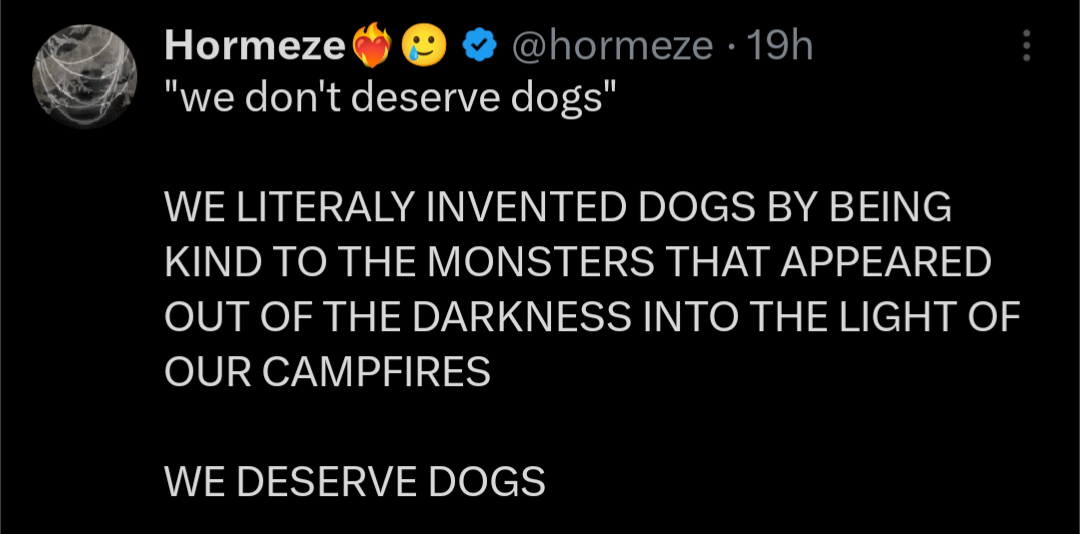this post was submitted on 31 Jul 2024
899 points (96.9% liked)
Microblog Memes
5910 readers
4156 users here now
A place to share screenshots of Microblog posts, whether from Mastodon, tumblr, ~~Twitter~~ X, KBin, Threads or elsewhere.
Created as an evolution of White People Twitter and other tweet-capture subreddits.
Rules:
- Please put at least one word relevant to the post in the post title.
- Be nice.
- No advertising, brand promotion or guerilla marketing.
- Posters are encouraged to link to the toot or tweet etc in the description of posts.
Related communities:
founded 1 year ago
MODERATORS
you are viewing a single comment's thread
view the rest of the comments
view the rest of the comments

Eugenics is bad because it's based on fundamentally incorrect ideas about how genetics plays into personal development. Galton drew specifically upon the fundamentally incorrect ideas of scientific racism, and wrote about Eugenics as being a means to better improve the superior races. Galton argued that things like poverty and mass suffering could have been solved this way, essentially arguing that it was the personal incompetence of the less fortunate which lead them into misfortune (also fundamentally incorrect).
Even if you drop the baggage of scientific racism, Eugenics is still conceptually ableist, choosing to eliminate those we deem disabled rather than finding solutions to better their lives.
On top of that, we were kind of hinging on sequencing the human genome giving us the insight to how genetic diseases work, the single possible case that eugenic thought might have had a use in. This has since fallen through. Further research into genetics has also demonstrated just how unreadable DNA is right now. We are still nowhere near being able to predict most genetic diseases based on the genetics of a couple.
I also cannot think of a single thing that eugenics implies should be done that isn't absolutely evil. I'd argue that things that only encourage evil actions are themselves evil.
The concept of changing the species through genetic manipulation with intention as opposed to wild flailings of evolution (which is why I would consider to be eugenics) is not inherently evil, nor does it require anything horrible. As the poster above said, it is just often used as an excuse to do horrible things.
When we're talking about this kind of genetic manipulation, there's two methods. Being able to meaningfully read a person's genetic code (we do not understand the majority of a person's genetic code due to a variety of issues), or basing your actions on individuals.
The individuals version has already been done, where we barred certain 'undesirable' individuals from reproducing. We know this one to explicitly only leads to evil implementations. It turns the practice of finding a romantic partner into a game of fusing two people together to get a better one.
The other method currently has two tools currently: selective IVF and CRISPR. Both of these are in their infancy, with how effective they are still being up in the air. These techniques require highly specialized professionals and are thus expensive. These will likely always be expensive even after they get cheaper. The world we live in where the rich can have "super-babies" with no genetic defects, while most poor children are still born naturally, is one where discrimination based on genetics is treated as rational, and based on lineages. That is fundamentally the creation of an evil world.
We're also still ignoring the fact that we're still pretty explicitly ableist as a culture. How do you think it'll feel when a person who lives with a disability gets pressured into IVF "so the child doesn't end up like you". Blind people have a subculture, deaf and mute people have a subculture, most people living with disabilities find each other for solidarity and relatability. We call it 'living with disabilities', but they just call it 'living'. We're still treating these issues as if they're something to wipe out rather than changing our culture and infrastructure to accommodate them.